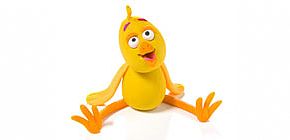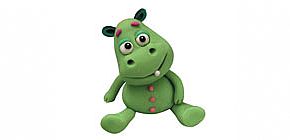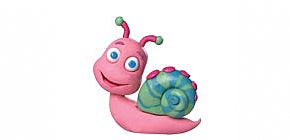Does Your Infant Have a Cold? Here’s How to Cope With a Stuffy Nose
.jpg) |
|
The cold is one of those winter illnesses, and for little ones, it’s particularly vexing, as they cannot blown their own noses. Their sleep is disrupted, their appetite decreases and they become restless - just some of the side-effects of colds in infants. As such, many parents turn to doctors and Tipat Chalav (well baby clinic) nurses for help relieving the phenomenon. We’ve culled all the answers to the most common questions about colds and coughs, right here.
Pediatricians know it all to well: winter arrives and with it a storm of questions from parents who wish to relieve their infants and toddlers of the discomfort related to colds and coughs. As these questions tend to repeat themselves, we’ve collected all the answers to them, as outlined by our two experts: Dr. Doron Carmi, a pediatrician and endocrinologist, and Ella Gerstein, a former Tipat Chalav nurse and current parenting counselor.
The cough is a reflex designed to clear the airway of secretions and foreign objects. Even when it’s bothersome and relentless, the cough is there to fill an important role and so there is no need for immediate medical treatment a-la cough syrup. Most coughs in infants and toddlers are caused by mucus.
What’s the connection between mucus and coughs?
When you lay a stuffy infant or toddler in bed, the mucus drips from the nose and respiratory tract, down to the throat. This irritates the throat and causes your little one to cough, and sometimes even vomit. Coughs can be caused by other reasons, as is the case in illnesses such as stridor, whooping cough and pneumonia. As such, in any case of a cough, it’s a good idea to head to the doctor for a listen to your child’s lungs with a stethoscope.
You can relieve a mucus-caused cough by elevating the head of your infant’s crib, using saline nasal spray to dry the mucus, or other essences that open the airways, such as Taftafim Eucalyptus.
How can you relieve thick and persistent mucus?
In this case, Dr. Doron Carmi recommends taking your child for a nose swab test, to identify whether the mucus is viral and will pass on its own, or bacterial - caused by the presence of bacteria in the respiratory tract, requiring special treatment. If the test indicates a virus, you can use common relief treatments, such as saline nasal spray, plant-based essences to relieve breathing and others. If the test indicates the presence of bacteria, you can return to the doctor for further treatment.
Their nose is red and irritated, and every wipe is accompanied by tears. What to do?
Since little ones don’t know how to blow their own noses effectively, they drip on end, leading to frequent wiping with tissues and wipes, which can cause dryness, irritation, and redness on and around the nose. To relieve the unpleasant sensation, apply Taftafim Afgel to calm the dry and irritated area. You can also use wet nose wipes, like Taftafim Wet Nose Wipes to help prevent cracked and red skin.
Does the color of the mucus matter?
Many parents describe their child’s mucus in great detail, thinking that these descriptions will help diagnose the issue. But in essence, there is no real difference between the different types of mucus. For example, in the case of the reno-virus, a very common illness, the mucus starts out clear, and then becomes cloudy (or pussy, as many parents describe it). In the case of viral mucus, there is no bacterial involvement, and so there is no way to know which illness it is by the color of the mucus. There correct way to proceed is to give a swab and send it to the lab.
What type of cough does your infant have? Dry? Wet? Barking? Different medical states are characterized by different types of coughs. All you need to ...
How should you warm your home and your infant’s bedroom? Do you need to bathe your child every day? What are the baby gear must-haves for your home? ...
Many parents of infants and toddlers complain about their children experiencing never-ending colds. On the one hand, their children are in good ...


.jpg)
.jpg)
.jpg)
.jpg)



.jpg)
.jpg)
.jpg)
.jpg)

.jpg)





Contact us